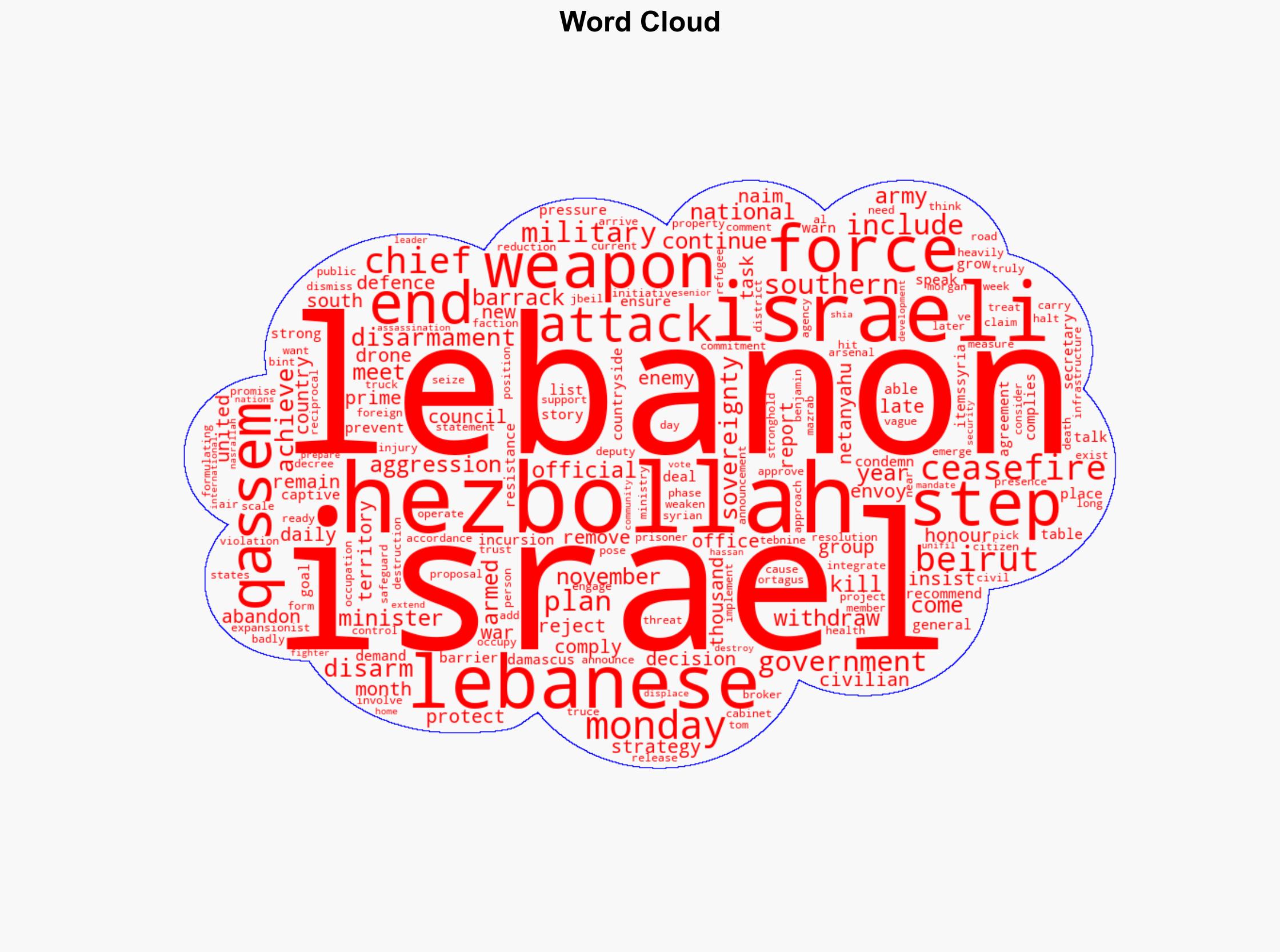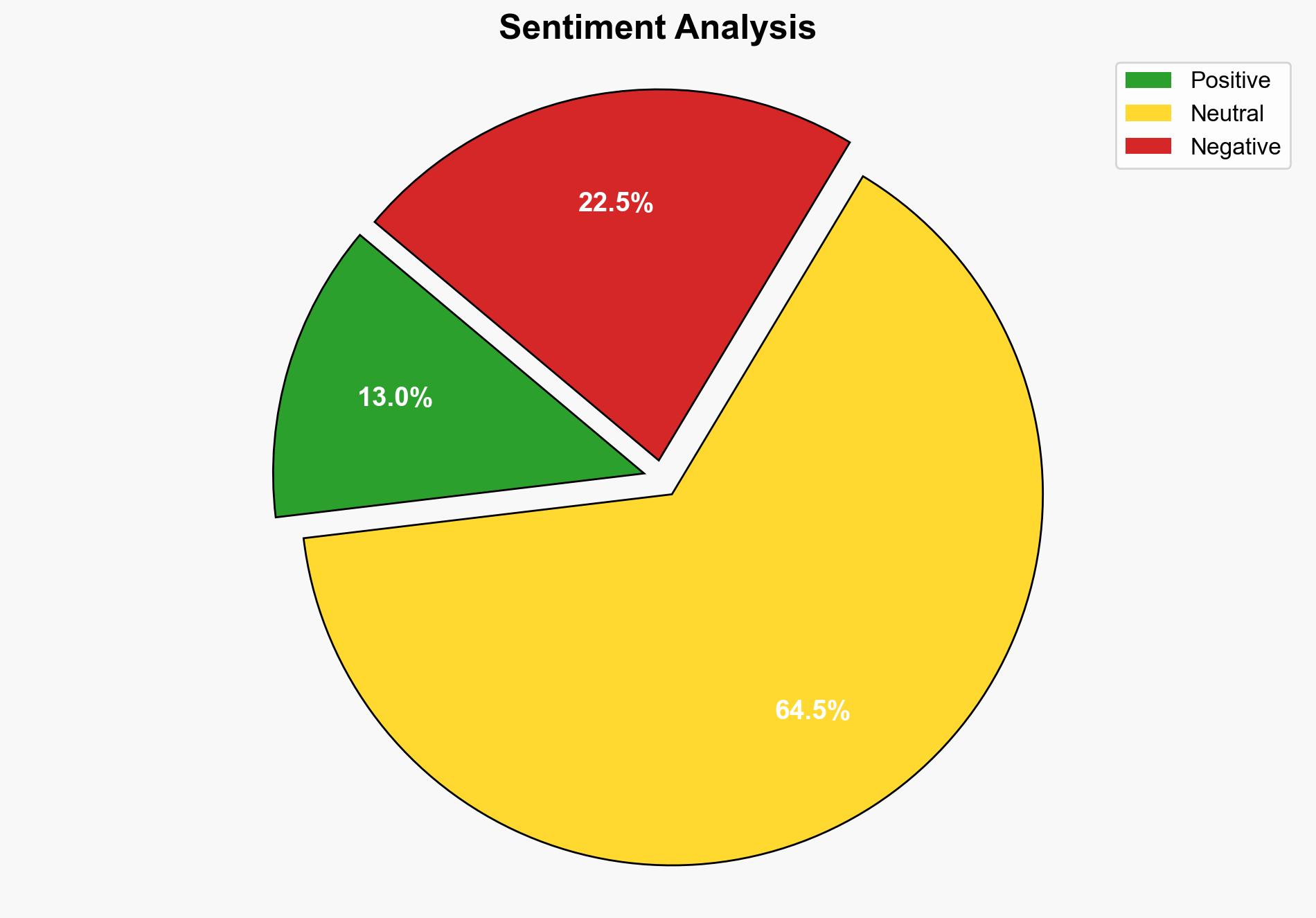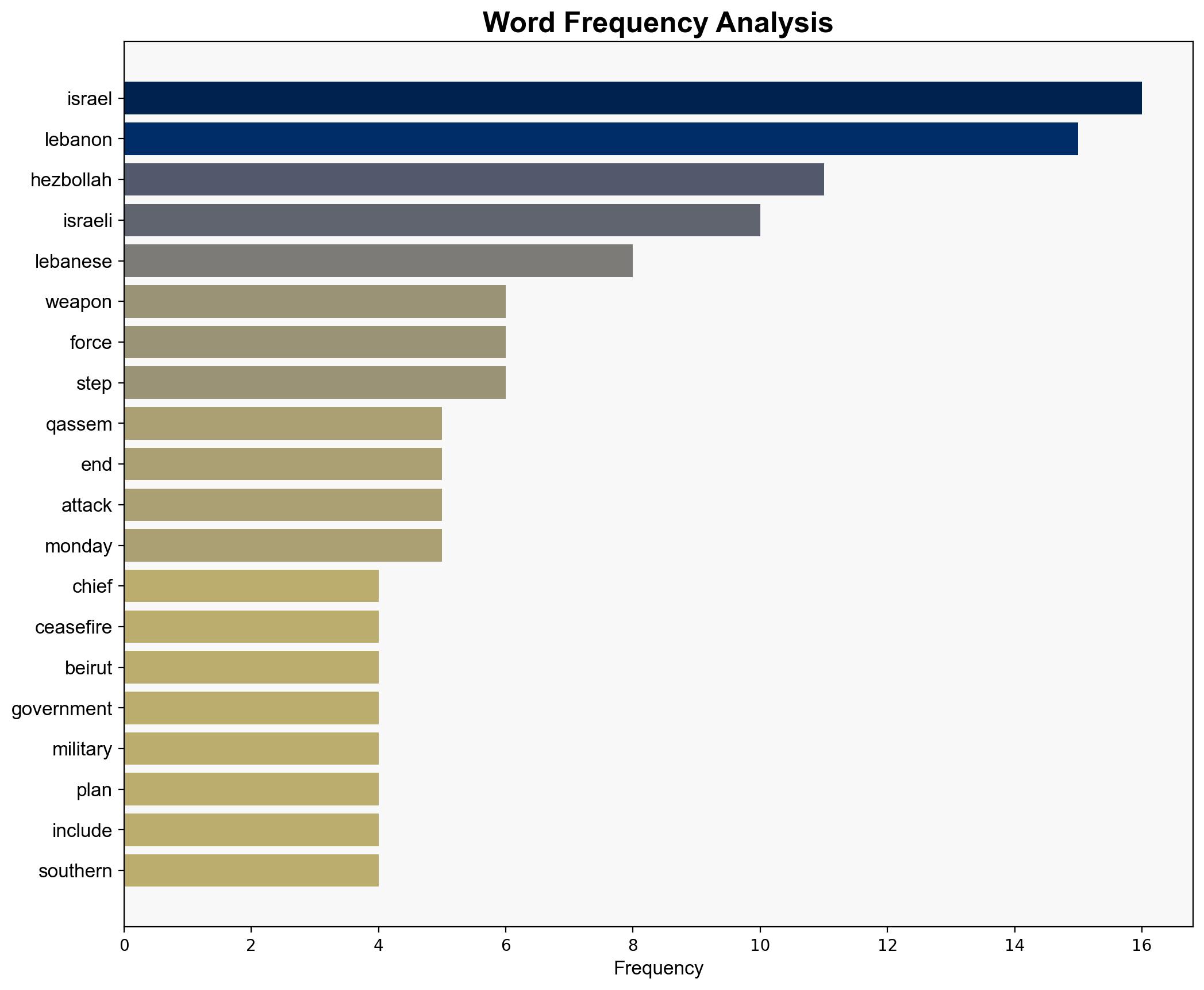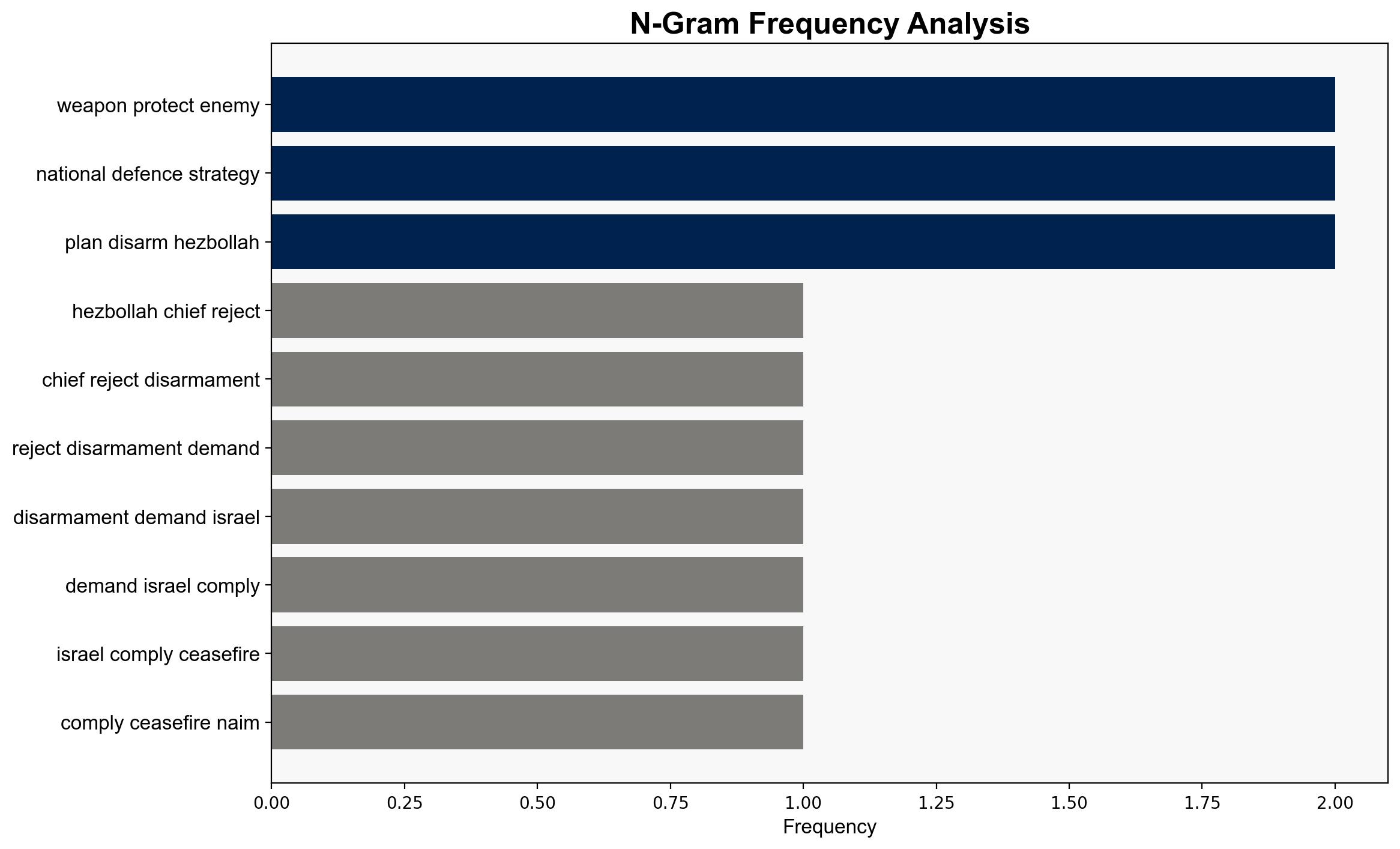Hezbollah chief rejects disarmament demands Israel comply with ceasefire – Al Jazeera English
Published on: 2025-08-25
Intelligence Report: Hezbollah chief rejects disarmament demands Israel comply with ceasefire – Al Jazeera English
1. BLUF (Bottom Line Up Front)
The most supported hypothesis suggests that Hezbollah’s rejection of disarmament is a strategic maneuver to maintain its influence and leverage in Lebanon, while simultaneously pressuring Israel to adhere to ceasefire commitments. Confidence level: Moderate. Recommended action: Encourage diplomatic engagement to address both disarmament and ceasefire compliance, potentially involving international mediators to ensure balanced negotiations.
2. Competing Hypotheses
1. **Hezbollah’s Rejection as a Strategic Defense**: Hezbollah refuses disarmament to protect its strategic position and deter Israeli aggression, using its arsenal as a bargaining chip to ensure Israel’s compliance with the ceasefire.
2. **Hezbollah’s Rejection as Political Posturing**: Hezbollah’s stance is primarily for domestic political gain, aiming to consolidate power within Lebanon by portraying itself as the defender of national sovereignty against external pressures.
Using ACH 2.0, the first hypothesis is better supported by the evidence of ongoing Israeli military actions and Hezbollah’s historical use of its military capability as leverage. The second hypothesis is less supported due to the lack of direct evidence linking current actions to domestic political strategy.
3. Key Assumptions and Red Flags
– **Assumptions**: It is assumed that Hezbollah’s military capability is primarily defensive. There is also an assumption that Israel’s military actions are perceived as aggressive by Hezbollah.
– **Red Flags**: The lack of detailed information on internal Hezbollah deliberations and the potential bias in reporting from involved parties.
– **Blind Spots**: The potential influence of external actors, such as Iran, on Hezbollah’s decision-making is not fully explored.
4. Implications and Strategic Risks
– **Escalation Risks**: Continued Israeli military actions could provoke a stronger military response from Hezbollah, leading to broader regional conflict.
– **Geopolitical Impact**: The situation could strain Lebanon’s relations with Western allies, complicating international diplomatic efforts.
– **Economic Consequences**: Prolonged conflict could further destabilize Lebanon’s already fragile economy, exacerbating humanitarian issues.
5. Recommendations and Outlook
- **Diplomatic Engagement**: Facilitate dialogue between Hezbollah and Israeli representatives, possibly under UN auspices, to address mutual security concerns.
- **International Mediation**: Involve neutral parties to mediate and ensure compliance with the ceasefire, reducing the likelihood of unilateral military actions.
- **Scenario Projections**:
– **Best Case**: Successful negotiations lead to a phased disarmament plan and full ceasefire compliance.
– **Worst Case**: Breakdown in talks results in renewed hostilities and regional instability.
– **Most Likely**: Continued stalemate with intermittent skirmishes and diplomatic efforts to manage tensions.
6. Key Individuals and Entities
– Naim Qassem
– Benjamin Netanyahu
– Tom Barrack
– Morgan Ortagus
7. Thematic Tags
national security threats, regional focus, conflict resolution, diplomatic strategy





